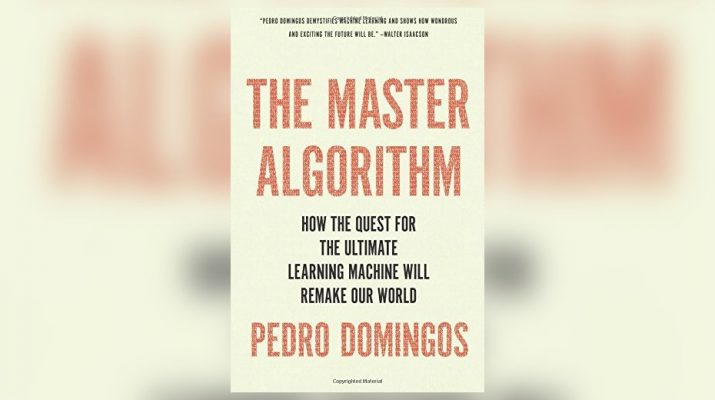Domingos’s book “The Master Algorithm: How the Quest for the Ultimate Learning Machine Will Remake Our World” is one of the books which Bill Gates recommends in order to understand Artificial Intelligence.
To get up to speed on artificial intelligence, Microsoft cofounder and philanthropist Bill Gates recommends Nick Bostrom’s Superintelligence and Pedro Domingos’s The Master Algorithm.
In the world’s top research labs and universities, the race is on to invent the ultimate learning algorithm: one capable of discovering any knowledge from data, and doing anything we want, before we even ask.
In The Master Algorithm, Pedro Domingos lifts the veil to give us a peek inside the learning machines that power Google, Amazon, and your smartphone. He assembles a blueprint for the future universal learner-the Master Algorithm-and discusses what it will mean for business, science, and society. If data-ism is today’s philosophy, this book is its bible.
Machine learning is the automation of discovery, and it is responsible for making our smartphones work, helping Netflix suggest movies for us to watch, and getting presidents elected. But there is a push to use machine learning to do even more—to cure cancer and AIDS and possibly solve every problem humanity has.
Domingos is at the very forefront of the search for the Master Algorithm, a universal learner capable of deriving all knowledge—past, present and future—from data. In this book, he lifts the veil on the usually secretive machine learning industry and details the quest for the Master Algorithm, along with the revolutionary implications such a discovery will have on our society.
Domingos writes: “If it exists, the Master Algorithm can derive all knowledge in the world—past, present, and future—from data. Inventing it would be one of the greatest advances in the history of science.”

Pedro Domingos is a professor of computer science at the University of Washington and the author of “The Master Algorithm”. He is a winner of the SIGKDD Innovation Award, the highest honor in data science. He is a Fellow of the Association for the Advancement of Artificial Intelligence, and has received a Fulbright Scholarship, a Sloan Fellowship, the National Science Foundation’s CAREER Award, and numerous best paper awards.
He received his Ph.D. from the University of California at Irvine and is the author or co-author of over 200 technical publications. He has held visiting positions at Stanford, Carnegie Mellon, and MIT. He co-founded the International Machine Learning Society in 2001. His research spans a wide variety of topics in machine learning, artificial intelligence, and data science, including scaling learning algorithms to big data, maximizing word of mouth in social networks, unifying logic and probability, and deep learning.



